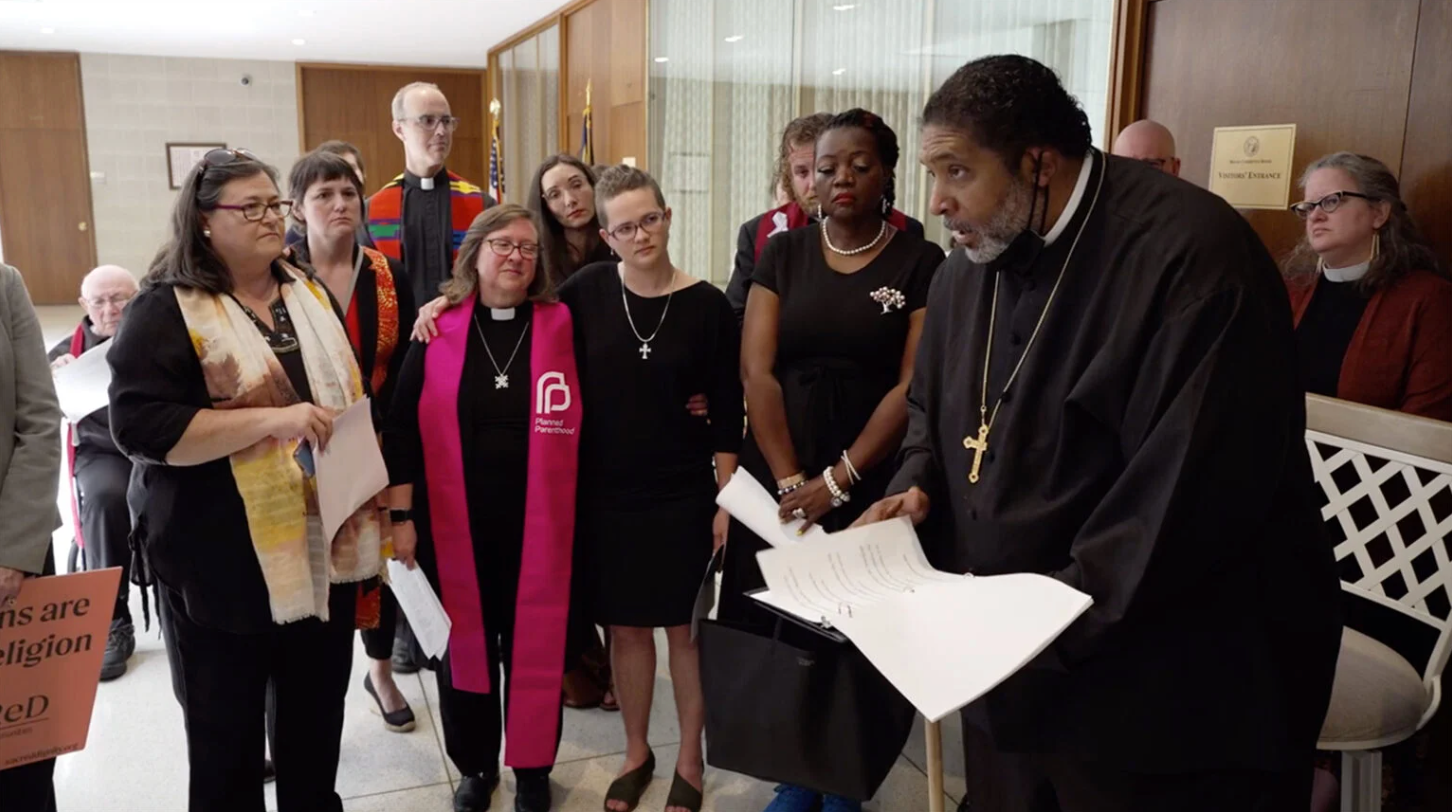Led by the Rev. William J. Barber II, a dozen Christian clergy stood in the hallway of the North Carolina General Assembly Friday (May 12) to denounce a bill approved earlier this month that bans abortion after 12 weeks of pregnancy, and to say, in effect, ‘not in my name.”
The press conference comes one day ahead of a large rally planned for Saturday at which time Democratic Gov. Roy Cooper is expected to veto the bill. As soon as next week, North Carolina Republican lawmakers, who hold a veto-proof majority, will likely override the veto. If they succeed, the law will go into effect July 1.
North Carolina currently has a 20-week abortion ban, and 54% of the state’s residents want to keep it that way, according to a poll by Carolina Forward/Change Research.
The clergy gathering suggested many of the state’s clergy do, too, and since the U.S. Supreme Court’s ruling in the Dobbs case last year that overturned Roe v. Wade, many ministers in Protestant denominations have been at pains to signal that not all Christians oppose abortion.
In fact, most Christians — as most Americans — favor keeping abortion legal. A nationwide PRRI study earlier this year found that white evangelicals, Jehovah’s Witnesses, Latter-day Saints and Hispanic Protestants were the only American religious groups where majorities believe abortion should be illegal.
Barber was accompanied by the Rev. Jennifer Copeland, executive director of the North Carolina Council of Churches, which has also decried the bill, as did several Black and Hispanic women clergy in the group. The council represents 18 Christian denominations across the state.
“Please don’t quote the Bible to tell me you can make your faith the law of the land because I read the Book, and it is clear about what we must demand of political leaders in the public square,” said Barber, leader of the Poor People’s Campaign and Repairers of the Breach. “Jesus says to nations, you really want to be about my word?” Barber thundered. “When I was hungry, you gave me something to eat. When I was thirsty, you gave me something to drink.”
Lawmakers, Barber suggested, should instead focus on raising the minimum wage, stemming gun violence and narrowing economic inequality.
Like Barber, Copeland challenged the prevailing view that Christians are opposed to abortion. She reminded listeners that before the Supreme Court made abortion legal in 1973, it was clergy, both Christian and Jewish, who helped women access abortion through the Clergy Consultation Service on Abortion.
“Religious leaders know what is at stake for a woman faced with an unexpected pregnancy,” Copeland said. “God’s primary directive for God’s people has always been about all of us taking care of each one of us but allowing every one of us the freedom to make our own decisions.”
The bill passed by the state assembly includes a number of exceptions — capping abortions at 20 weeks in cases of rape or incest and 24 weeks for “life-limiting” fetal anomalies, including certain physical or genetic disorders that can be diagnosed prenatally. An existing exception for when the life of the pregnant woman is in danger would remain.
But the bill also bans medication abortions after 10 weeks and requires three in-person appointments days apart for anyone seeking a medical abortion. It also imposes new regulations and licensing requirements that could cause the closure of some of the state’s 16 abortion clinics. Seven of those provide abortions.
Rallies to sustain Gov. Cooper’s planned veto will fan the state Saturday. In addition to the main one in downtown Raleigh, the state capital, rallies are planned in Asheville, Cary, Boone, Greensboro and Wilmington.

